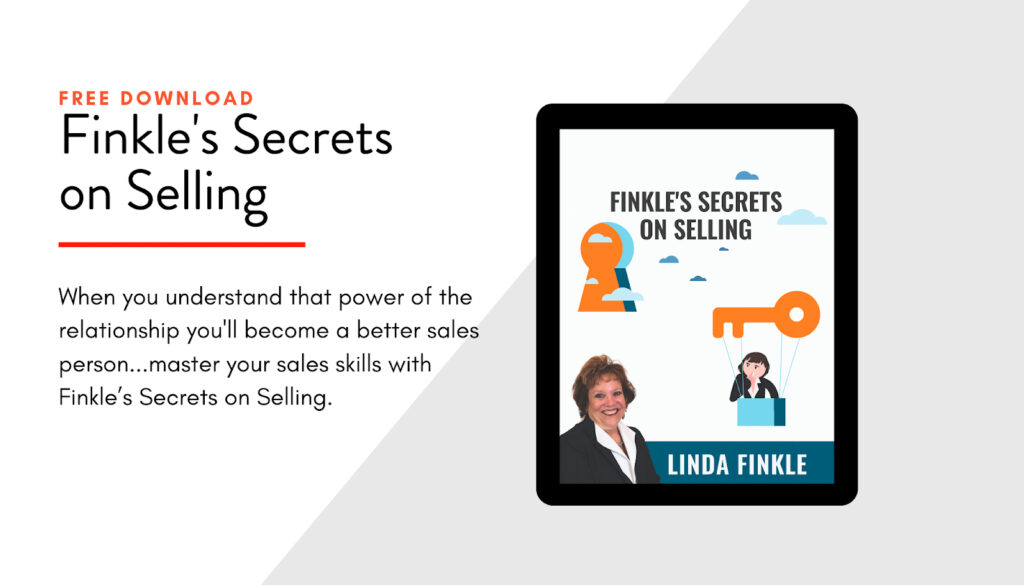People in sales, especially ones early in their career reach out to friends and family as prospects. They spend a lot of time schmoozing with them, because they think these will be quick and easy sales. The problem with this thinking is that even if it works, it sets them up for failure long term.
Sales people by nature tend to enjoy interacting with other people. Of course there are exceptions but as a generalization sales people like talking to and relating to other human beings. As a result every time they are with friends or family they are schmoozing. At family events, cocktail parties, sporting events, bars…you name it any time there are people around they know they are socializing with the thought of selling them. That personality trait can be helpful, and it can have sales people thinking that’s all they need to close deals. And it ain’t so.
So what’s the real challenge with chatting with people you know as potential prospects? Don’t people buy from those they know, like and trust? Assuming that’s correct doesn’t it make sense that those who know you would buy from you? Of course the answers are yes…but.
With over thirty years in sales and training sales people here is what I have discovered.
1. Let’s assume that some people you know buy from you. What happens when you run out of people you know?
2. Your family and friends say yes because it’s you, and often aren’t representative of a true prospect.
3. You get a false sense of how easy selling is. When you find out differently it makes you question yourself and if you should be in sales.
4. Early wins can cause success intoxication. You think you know what to do and ignore the lessons you need to learn about selling.
5. If those who you know don’t buy from you it often creates insecurity. You think ‘if they won’t buy from me no one ever will’ and become discouraged, maybe even throw in the towel before you see results.
6. Prospects are individuals who get to know you over time. They take nurturing and patience to develop. You have to develop those relationships, and lots of them in order to continue to be successful in sales. Focusing on those you know often means you aren’t focusing on prospecting to get to know others.
7. While you have a product or service to sell, you sell to people and their needs. To learn how to identify needs and get individuals to open up to you takes time and developing sales skills such as listening, asking questions and truly being interested in satisfying their needs, more than closing the sale.
8. Sometime we all get lucky and close a deal easily and quickly. Seasoned sales professional understand that the luck happened because they were in the business every day doing what they need to. More junior sales people attach unrealistic meaning and thus don’t do what needs to be done to create the luck.
9. Sales is a tough profession. It’s requiring. While I don’t subscribe to the theory that it takes seven interactions with a prospect to have a deal close I do believe that you have to continue to be at bat. Easy wins are wonderful and often backfire in how it affects the sales person.
As I said I’ve been in sales for more than thirty years and only once did a friend or family member use my service. In that situation they contacted me.
I went into sales with the belief that I had to create my own success, and learn everything I could to develop my sales skills. I had a lot of rejections early on both in the prospecting phase and in the closing phase.
Discouraging for sure but I kept making the calls, setting the appointments, working on my skills, and going up to bat.
Over time my skills improved in discerning who might actually be a real possibility as a prospect.
My sales skills improved as I moved from me doing the talking to me listening and learning to ask more questions. My closing rate significantly improved, primarily because I only invested time in deals that had a realistic possibility of closing and pushed aside the others. I read books on sales, I took sales training courses, I asked my manager for help, I tracked my numbers to measure improvement…bottom line I wanted to be successful and invested time and resources to get there.
Of course, it’s helpful when you know people who will buy from you, and when they know people they refer to you who will buy from you.
It doesn’t however teach you the salesperson how to really sell. In order to be successful in sales, your head needs to be in the right place.
Understanding what you did to close a deal is essential, as is recognizing what steps you missed if a deal does not close.
When you spend your time schmoozing with friends and family you will miss learning what you need to do in the sales process to ensure you achieve what you want long term. There is a balance between using your contacts and recognizing what skills you need to acquire for successful selling.
Make sure you don’t overestimate those personal relationships or underestimate what else you need as a sales professional.
Want More Selling Tips?
I have created a list of my top tips that I have personally used over and over again to become a top salesperson.







